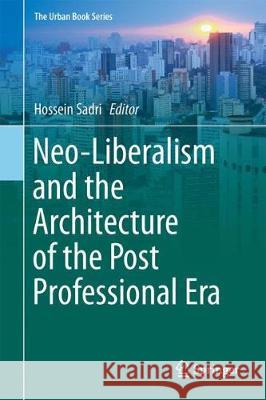Neo-Liberalism and the Architecture of the Post Professional Era » książka
topmenu
Neo-Liberalism and the Architecture of the Post Professional Era
ISBN-13: 9783319762661 / Angielski / Twarda / 2018 / 336 str.
Kategorie BISAC:
Wydawca:
Springer
Seria wydawnicza:
Język:
Angielski
ISBN-13:
9783319762661
Rok wydania:
2018
Wydanie:
2018
Numer serii:
000789133
Ilość stron:
336
Waga:
7.07 kg
Wymiary:
23.5 x 15.5
Oprawa:
Twarda
Wolumenów:
01











